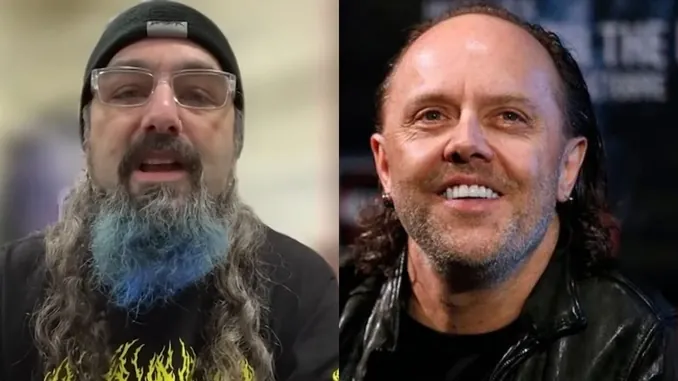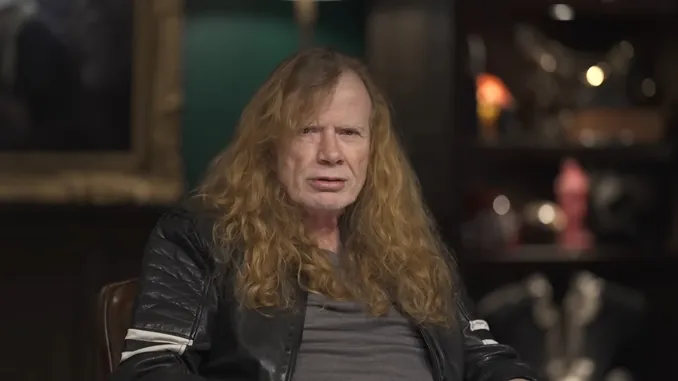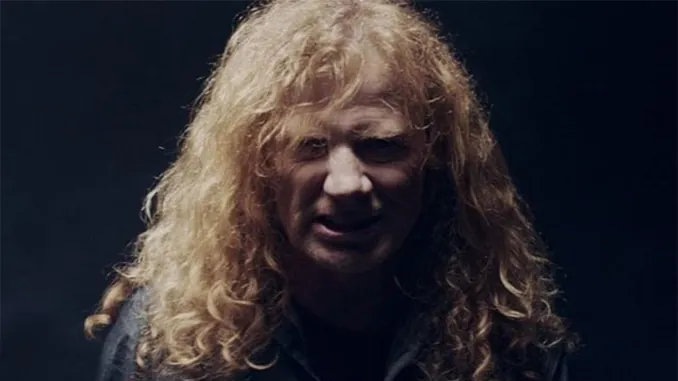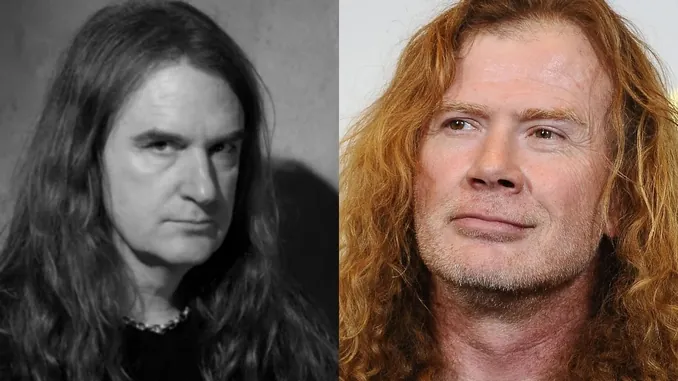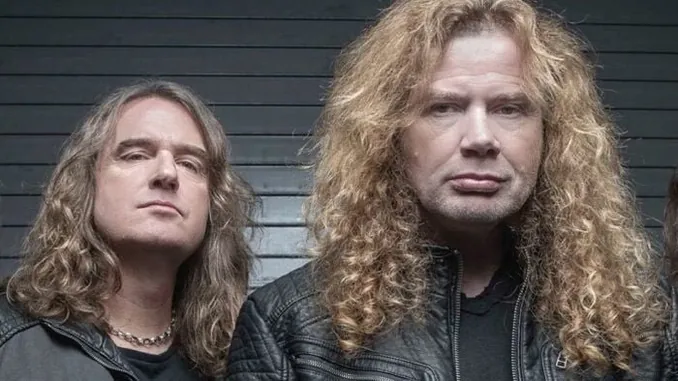David Ellefson Breaks Down Megadeth’s Risk and Its Divisive Legacy
Inside the creative decisions, missed metal tracks, and market pressures that defined the album
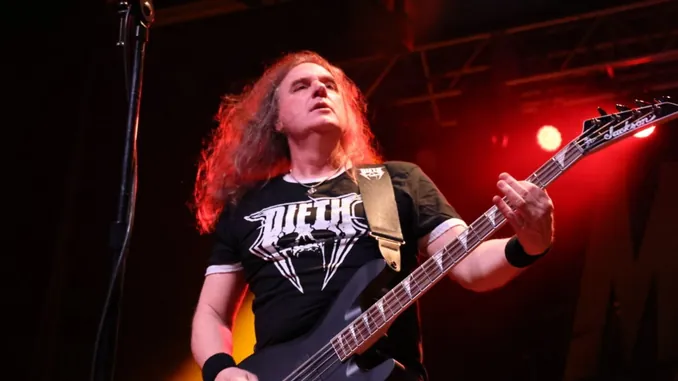
Summary
- David Ellefson calls Risk Megadeth’s “most controversial album”, originally meant to blend metal and radio rock, but ended up missing key metal tracks due to time constraints.
- Shifting trends saw Disturbed, Godsmack, and Korn rising with heavier sounds, while Megadeth veered into lighter, radio-friendly territory that confused many longtime fans.
- Marty Friedman and Dave Mustaine offer very different views: Friedman says they did their best at the time, while Mustaine blames creative compromises and even jokes about sounding like Dishwalla.
In 1999, Megadeth rolled the dice with Risk, a record that veered sharply away from the band’s thrash metal identity. For David Ellefson, the album remains, in his own words, “probably the most controversial album in the catalog.”
It wasn’t just the fans who struggled with it; even the band didn’t fully recognize how far they’d strayed until it was too late.
Related
During a recent appearance on The Metal Forge podcast, Ellefson broke it down: “We kind of took for granted, like, ‘Well, we’ll write the heavy metal tunes when we get down to Nashville.’”
The problem? By the time they got there, their creative energy had already been funneled into crafting radio-friendly material, leaving little room for the heavy edge fans expected.
Chasing Trends
Ellefson makes no secret that market trends played a role in Risk’s direction. He compared Megadeth’s situation to big brands: “Whether you’re Starbucks or you’re Megadeth or you’re Chevrolet… you have to be aware of market trends.” On Cryptic Writings, this strategy worked. Songs like Trust and Almost Honest balanced metal roots with mainstream radio appeal.
But as Ellefson admits, timing was not on their side with Risk. As Megadeth lightened their sound, bands like Disturbed, Godsmack, and Korn were dragging heavy music into the mainstream, leaving Megadeth’s attempt at radio dominance looking oddly out of step.
The Big Four’s Gamble
Ellefson also pointed out how other thrash heavyweights adapted, or didn’t, to the shifting musical landscape. “Slayer didn’t change. Testament didn’t change. Anthrax kind of did, but John Bush gave them a jumpstart.” Meanwhile, Megadeth and Metallica both experimented with their sound, with varying levels of fan support.
Reflecting on the ’90s, Ellefson remains pragmatic: “Look, I’m not complaining. Megadeth, that was our biggest decade. We were very prolific.” But by the 2000s, the band realized it was time to rechart their course.
The Fan Argument
Despite the backlash, Ellefson acknowledges that Risk became an entry point for some listeners. One fan once told him: “That was my very first Megadeth album I ever bought. I fell in love with it and I bought every other album since.”
For Ellefson, that story resonates. He compares it to his own experience discovering KISS during the Destroyer era, despite hardcore fans dismissing that album at the time. “People like things for different reasons,” he said, stressing that music is ultimately subjective. “You’re not gonna please everybody all the time, and we’re not in that business, to be honest with you.”
Rushed Process
Looking back, Ellefson believes time constraints hampered Risk. Speaking to Overdrive.ie, he admitted: “It didn’t have time to simmer and percolate and really kind of sink into us.” As a result, many of the songs felt disconnected when performed live.
Their manager’s push for more radio-oriented material didn’t help. Ellefson recalled: “With ‘Risk’, there was this really heavy push: ‘If some is good, more must be better.’” The plan to write heavy tracks in Nashville never materialized, leaving the album skewed toward commercial rock.
Marty Friedman’s Take
Former guitarist Marty Friedman has a simpler explanation: “It’s exactly where we were as a band at that time.” To him, Risk serves as a musical yearbook, a snapshot of Megadeth’s state in the late ’90s. In multiple interviews, Friedman has maintained that everyone involved did their best with the album they made.
“You can’t go back and say, ‘Oh, this sucks.’ At the time, we believed in it and we did the best we could,” Friedman told Whiplash.net. For him, revisiting the drama around Risk is largely irrelevant. “I’m barely thinking about what I did yesterday, much less back then.”
Mustaine’s Regret
Of course, no discussion about Risk is complete without Dave Mustaine weighing in. Seven years ago, he put the blame squarely on the band’s creative compromise:
“We kept slowing down and slowing down. If that record would have been called The Dave Mustaine Project and not Megadeth, I think it would have been successful.”
Mustaine was blunt about why things went wrong: “People wanted a Megadeth record. They didn’t wanna see Dave bending over backwards to keep Marty Friedman happy, ‘cause Marty wanted us to sound like @#$%! Dishwalla.”
Course Correction
Ultimately, the fallout from Risk pushed Megadeth to refocus. Ellefson credits that hard lesson for the direction they took on The World Needs A Hero. The band realized they needed to create music that they loved first, trusting their core audience would follow.
“If we like it, there’s gonna be a bunch of other knuckleheads just like us who are gonna like it too,” Ellefson concluded. And with that, Megadeth returned to the sound that made their name.
Got a tip for us? Email: [email protected]
Despite criticism, Portnoy argues Ulrich’s contributions go far beyond what critics acknowledge.


